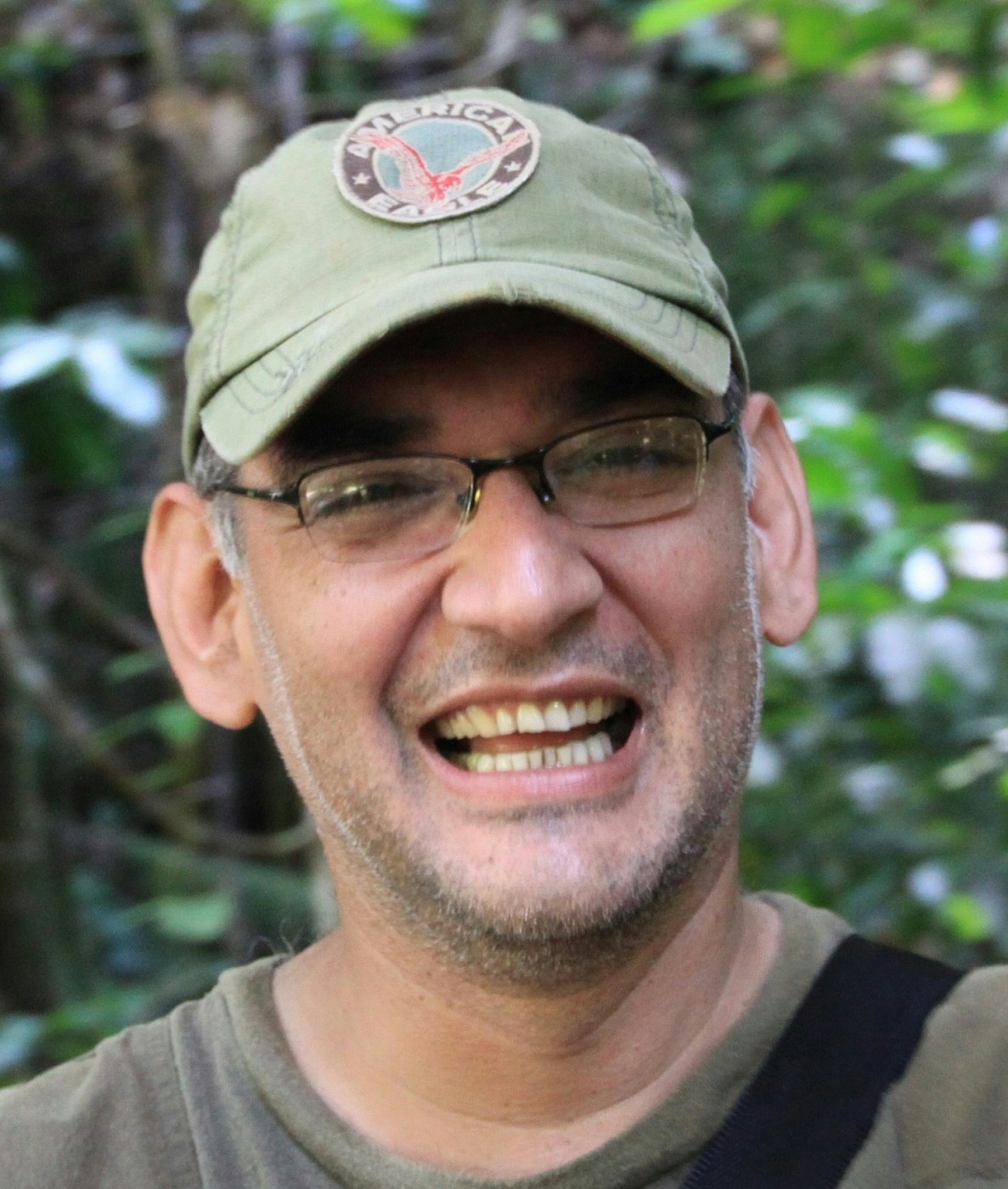Winner of the Whitley Award donated by the William Brake Charitable Trust in memory of William Brake
FOREST SENTINEL
The Harpy Eagle is one of the world’s largest eagles and certainly the heaviest! As the apex predator of the Venezuelan canopy in the Sierra Imataca, it is an indicator of forest health. This magnificent eagle has become rare in many parts of its range where poverty, hunting, political instability and a resulting lack of law enforcement have led to a sharp increase in illegal deforestation. Harpy Eagles are slow to reproduce and research indicates most harpy nests are found outside of protected areas, putting them at greater risk.
EAGLE VET
Trained as a veterinary surgeon, Alexander has been working with Harpy Eagles since 1996 where his veterinary, biological and climbing skills are put to the test. Some may remember him from the BBC wildlife documentary ‘The Hunt’ where he was climbing 40 metre high trees to tag eagle chicks and nursing injured eagles back to health before returning them to the wild. He has helped to conserve these iconic birds in Brazil and Ecuador, as well as in his native Venezuela where he is President of the Esfera Foundation and leads a national programme to protect the species.
HARPY GUARDIANS
Alexander’s long term vision is to develop protection strategies delivered by local people so that conservation is more resilient to economic and political perturbations. By cementing the Harpy Eagle as a flagship, Alexander hopes to limit deforestation and protect a greater number of nesting sites. Using a mixture of nest monitoring and community engagement, Alexander and his team have already convinced landowners to protect harpy nests and maintain forest patches around them. His work demonstrates that with the right approach, human settlement does not have to mean the local extinction of Harpy Eagles.
ALEXANDER’S PROJECT WILL:
- Partner with landowners and recruit local people as nest guardians to protect 70 nests and the surrounding forest
- Restore fragmented habitat and establish livelihoods in shade-grown coffee and cacao that limit deforestation and provide an incentive to maintain forest cover
- Develop positive attitudes to conservation among locals and 90% of school children in the municipality
Why it matters:
- The Sierra Imataca region has amongst the highest recorded densities of Harpy Eagles
- The area supports jaguar, giant anteater and the lowland tapir among other threatened species
- Every week, an area of forest bigger than central London is cut down in Venezuela
“After my first experience tagging an eagle chick nearly 20 years ago, I decided that this was what I wanted to do.”
PROJECT UPDATES
2019 CONTINUATION FUNDING
Ensuring Harpy eagles continue to fly free
Venezuela
£70,000 over 2 years
Considered a biodiversity hotspot, the Sierra Imataca region consists of the highest recorded densities of Harpy Eagle populations. Although listed as Near Threatened, they have become rare in many parts of its home range of Venezuela. A mixture of human population growth, poverty, unsustainable land use and weak policing of protected areas, coupled with political instability throughout the country has resulted in a dramatic unregulated increase of human encroachment into the eagle’s habitat and subsequent loss of harpy populations.
With Continuation Funding, Alexander and his team aim to train new conservation leaders, replicating his current conservation model to other areas of habitat in the region to increase the number of eagle nests under local protection. The focus will be on community-based methods of reducing and reversing forest loss in key conservation and biodiversity areas and expanding agroecosystem initiatives – such as shade coffee – for the benefit of local communities. In doing so the project will promote forest connectivity and the creation of ecological corridors whilst looking to secure economic independence for families in rural communities, consolidating viable agroecosystems with communal micro-enterprises.
2024 CONTINUATION FUNDING
International Collaboration: Conserving the Harpy Eagle across Latin America
Venezuela
£100,000 over 2 years
The Harpy Eagle is an iconic predator of the Neotropical forest, with its range spanning Venezuela to Argentina. One of the largest raptors in the world, it is an important indicator of ecological health. Sadly, this keystone species faces grave threats from habitat loss, poaching and the impacts of climate change, but thanks to the steadfast efforts of Alexander Blanco and his team at Fundación Esfera, the future of this iconic bird is looking brighter.
In Venezuela’s Sierra Imataca, Alexander’s initiatives have led to a 33% increase in the Harpy Eagle population since 2017, with approximately 498 individuals now recorded. Through habitat restoration, the creation of ecological corridors, and the integration of community-led conservation strategies, Alexander and his team have successfully mitigated human-wildlife conflict and bolstered the species’ survival. They have also expanded protected areas and established Community Conservation Areas to safeguard critical habitats. These efforts not only benefit the Harpy Eagle but also support a vast array of biodiversity. Monitoring activities in these areas have revealed increased species richness and recovery in ecosystems previously under threat. Community engagement is central to the success of these conservation efforts – more than 25 rural communities have been mobilised to become “Guardians of Nature,” Alexander’s model of conservation, honed over 35 years of work in Venezuela and Panama, has become a template for Harpy Eagle conservation across its range.
Using Continuation Funding, the next phase of Alexander’s work will focus on expanding research on the Harpy Eagle’s behaviour and ecology by establishing active conservation and monitoring programmes across six countries, including Brazil, Ecuador and Colombia He will promoting climate-resilient conservation corridors to mitigate the effects of deforestation and climate change and encourage international cooperation for long-term conservation policies.
The Harpy Eagle’s resurgence is a testament to the power of integrated conservation — where science, community action, and policy converge. By safeguarding this apex predator, Alexander is not only protecting a single species; he is championing the health and vitality of entire ecosystems across Latin America.



